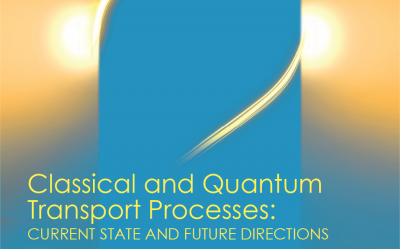CANCELLED DUE TO COVID-19 RISK.
Thermodynamics plays a fundamental role in all branches of physics and in many other fields of science and technology. The theory is particularly well established for macroscopic systems at or close to equilibrium. In the last 25 years, however, very significant progress has been made in our understanding of a vast variety of nonequilibrium phenomena, and it is now clear that, under certain conditions and for certain dynamics, a consistent (statistical, in particular) description can be established for systems driven arbitrarily far away from equilibrium.
Nonetheless, neither a complete description of nonequilibrium states nor a full characterization of transport processes is available, as the system state appears to strongly depend on the nature of the constraints acting on it, and on many other details of the dynamics. In particular, at present there is no universally accepted generalization of the equilibrium thermodynamic potentials, suitable to describe the state probability distribution of an out-of-equilibrium system.
The goal of this two-weeks ICTS scientific program is to bring together the key experts, as well as new researchers (experimentalists and theoreticians) in the field of physics of non-equilibrium systems, to summarize the central achievements of the field and assess the remaining open problems, in order to foster further advances.
The focus of this scientific program is that of nonequilibrium states in open classical and quantum systems. The first week will be devoted to the subject of Nonequilibrium States and Heat Transport and the second week to Quantum Thermodynamics and Nonequilibrium Transport. Everyone is invited to participate to both weeks.
The program will also include pedagogical lectures of 1.5 hours every morning, aimed at students, postdocs and young researchers. We encourage young researchers and students to participate in this program and to apply online here.
 icts
icts res
res in
in- Other links


